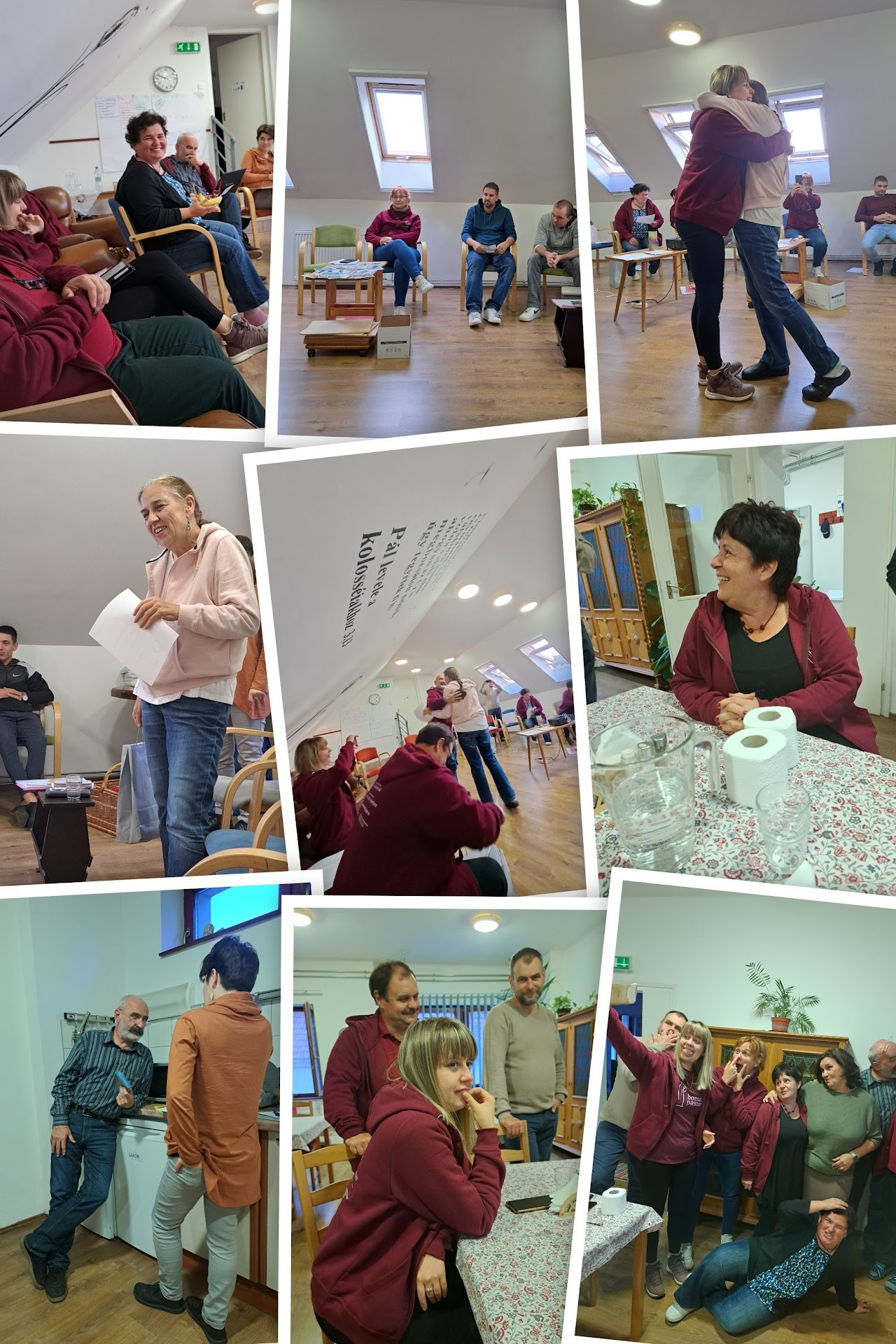Erasmus + – Life for Youth – Professional Training – Târgu-Mureș | Romania

Life for Youth
2022-3-RO01-KA210-YOU-000098044
Life Coaching for Young People
Professional Training
Târgu-Mureș, Romania
September 14–19, 2023
Summary
From September 14 to 19, 2023, a professional training event took place in Târgu-Mureș for eight addiction specialists from the Kallódó Ifjúságot Mentő Misszió (Rescue Mission for the Wandering Youth) of the Reformed Church of Hungary in Ráckeresztúr and eight specialists from the Bonus Pastor Foundation in Târgu-Mureș. The aim of the training was to teach participants how to provide life coaching (LC) services to young people in order to prevent and treat psychological addiction. The training involved the exchange of practical experience and professional knowledge, fostering deep and effective self-awareness, presenting life management methodologies for young people, assisting them in strengthening an abstinent lifestyle, and developing problem-solving and conflict management skills.
In his lecture series, Dr. Levente Horváth linked the themes above to four fundamental life problems: avoidance/anxiety stemming from the meaninglessness of life, avoidance/anxiety arising from the fear of death, avoidance/anxiety linked to the fear of freedom, and avoidance/anxiety related to the fear of isolation and loneliness. He compared these to the four bastions of the Kata Szidónia Petrőczy Castle in Ózd.
On the first day, participants focused on developing personal competencies. They learned to understand their own behavior in various situations and acquired different techniques for managing and reducing anxiety and stress, thereby strengthening their coping and stress tolerance skills
The second day addressed identity issues, seeking answers to questions such as: How does therapeutic and spiritual well-being contribute to healthy life management? How can we cope with anxiety? Where does the journey of self-awareness begin in primary, secondary, and tertiary prevention? How can we guide a substance user, who has experienced the meaninglessness of life, toward a meaningful existence that also serves as the foundation for social reintegration? In the afternoon, participants were introduced to the bibliological method, where they identified with characters from a biblical story and shared their own feelings and experiences from similar situations. The facilitator’s probing questions and reflections served as a starting point for the participants’ journey of self-discovery, offering them an opportunity for self-reflection. The day allowed participants to develop their cognitive competencies, based on both theoretical and practical experience, and learn how to plan and organize their daily activities.
The third day focused on family relationships, outlining the theory of transgenerational trauma, schemas, and patterns from the perspective of existential issues. The lecturer presented LC tools and techniques, in line with the Portage model, which participants could apply in their work with young people from families affected by addiction. The practical session provided an opportunity for participants to try these techniques themselves. This day offered a chance to develop problem-solving competencies. Participants could enhance their coping abilities, critical thinking, decision-making, and collaboration skills, increase their self-confidence, and learn conflict management techniques while taking responsibility.
The fourth day focused on the exercise of freedom and, in this context, the importance of interpersonal relationships. Interpersonal relationships can only be improved when individuals experience freedom together with responsibility. However, before this, false images and ingrained misconceptions about freedom must be exposed and dismantled. This is most evident in the case of drug use, emphasized the speaker, where young people often fall into the trap of self-deception, falsely equating addiction with freedom. Developing communication competencies plays a crucial role in debunking these illusions. The specialists learned communication techniques (e.g., assertive communication) through situational exercises, which they can confidently apply in both prevention settings and individual sessions.
The focus on the fifth day was on practicing fraternity, or assuming different social roles. Through group activities, participants had the opportunity to practice attentiveness, cooperation, and, when needed, conflict management. True connection with others can only be achieved when we listen attentively to our “brother,” respond to their cry for help, and are receptive to expressing and communicating their feelings. The goal of the day’s learning was to develop social competencies. Participants gained experience in different social roles, enabling them to apply these skills in their daily lives. They also learned about the effectiveness of collaboration between the specialist and the individual, gained insights into cohabitation, and learned how to ask for help after the end of a submissive relationship.
The final day focused on reinforcement in sober living, as well as problem-solving and conflict management. In the game “Who Will Take You Across the River?”, each participant chose someone they needed to guide across an imaginary river, without revealing the method they planned to use. This game helped illustrate connections, problem-solving abilities, and creativity. The event ended with a round-up session summarizing the knowledge, experiences, and emotions gained throughout the training.
The exchange of learning and experiences was one of the most enriching outcomes of this training.


